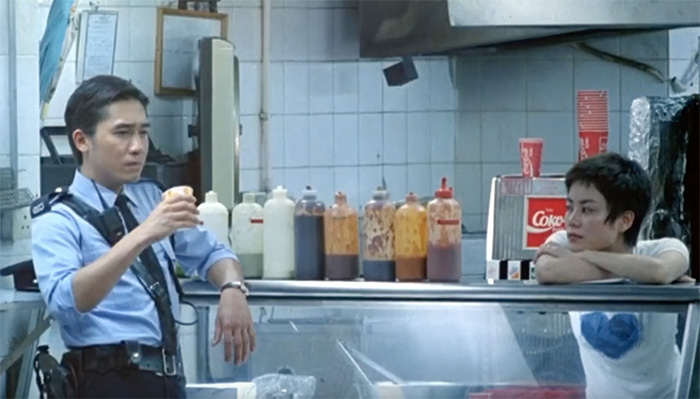
Wong Kar Wai’s “Chungking Express” intricately weaves a narrative that delves into the emotional labyrinth of love, presenting a story that is as multifaceted as love itself.
Through the interconnected lives of its characters—Ho Chi Moo, Cop 663, and Faye—this cinematic masterpiece explores the cyclical nature of love, from the depths of despair to the heights of newfound affection, and everything in between.
At its essence, “Chungking Express” serves as a meditation on love’s complexities and the profound impact it has on the human condition.
The film masterfully portrays love in its many forms: whimsical, frustrating, and profoundly transformative.
Through the unique journeys of its characters, each coping with the aftermath of heartbreak in their way, the film offers a rich tapestry of emotional experiences that resonate with the universality of love’s trials and triumphs.
The stories of Ho Chi Moo and Cop 663, both reeling from the pain of being dumped, present contrasting yet complementary perspectives on heartbreak.
Ho Chi Moo’s struggle, characterized by an unwillingness to let go of the past, sheds light on the anguish of unreciprocated love and the torturous grip of nostalgia.
His narrative is a poignant reflection on the isolating nature of clinging to memories that no longer serve the present.
Conversely, Cop 663’s experience offers a more tangible exploration of love’s aftermath, emphasizing the shared memories and palpable sense of loss that come with the end of a relationship.
Wong Kar Wai’s decision to juxtapose these narratives underscores the varied ways individuals process heartbreak and the importance of shared experiences in forging meaningful connections.
The stagnation following a breakup is poignantly depicted through Cop 663’s life, with his neglected apartment symbolizing a life paused at a happier moment.
Faye’s intervention, as she cleans and rearranges his space, becomes a powerful metaphor for the healing process and the necessity of releasing the past to embrace the future.
This aspect of the film highlights the transformative power of love, even when it comes in unexpected forms or from unforeseen interventions.
Faye, with her complex feelings towards Cop 663, embodies the confusion often inherent in love.
Her actions, driven by a deep affection, juxtapose her hesitation to fully commit to a relationship, reflecting the film’s nuanced understanding of love’s multifaceted nature.
This portrayal speaks to the film’s broader theme that love is seldom straightforward, requiring individuals to navigate their emotions and desires thoughtfully.
“Chungking Express” stands as a profound commentary on love’s capacity to both wound and heal, to hold us back and propel us forward.
Wong Kar Wai crafts a narrative that is as reflective as it is engaging, inviting viewers to ponder their own experiences of love, loss, and the eventual journey towards understanding and acceptance.
For viewers accustomed to clear-cut narratives and definitive conclusions, “Chungking Express” may indeed seem confusing.
However, the film’s beauty lies in its ambiguity and the space it offers for personal interpretation.
It’s a testament to the unpredictable nature of love and life, where not all stories have neat endings, and sometimes, the journey itself is where the real magic lies.






